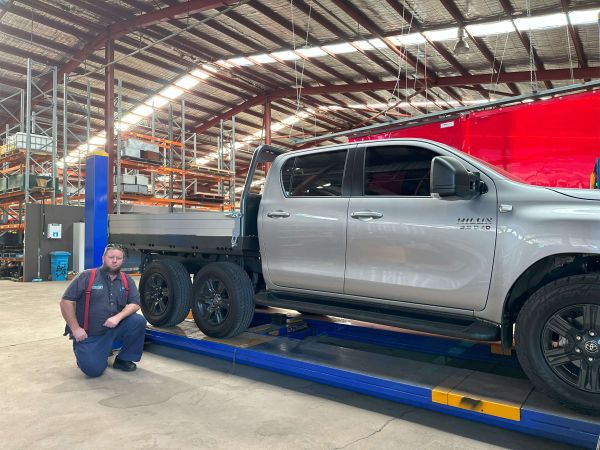Regulatory burden negatively impacting majority of Queensland businesses, new data shows
Inefficient government regulation, or red tape, has impacted 70% of Queensland business' growth while the median business cost of complying with regulation has doubled to $50,000 in the last two years, new Business Chamber Queensland data shows.
Out today, Business Chamber Queensland’s 2023 Efficient Regulation Report shows both the time and cost businesses spend to meet regulatory burden increased, with 80% of businesses surveyed reporting major to moderate negative impacts from regulatory compliance.
It’s among the highest impact recorded since the survey began in 2009.
Business Chamber Queensland works with the state’s business community to understand the impact of inefficient regulation and requirements on Queensland businesses and to track changes to the burden of regulatory compliance.
In 2023 the median financial cost to businesses was $50,000 with employing staff, paying taxes and building approvals among the most significant costs. It's twice the cost reported in 2021.
Business Chamber Queensland CEO Heidi Cooper said businesses reported regulatory burden was an ongoing business issue and had considerable impact on their operations and ability to grow long-term.
“We saw this significant business impact across the whole business community from sole traders and micro businesses to medium and large businesses,” Ms Cooper said.
“We know through our data reducing red tape and regulatory burden is a major issue for Queensland businesses and one they look to governments to prioritise."
The majority of businesses reported they spent up to five hours a week complying with regulatory burden, with some committing more than 20 hours per week.
More than 80% of businesses reported better communication and consultation when developing new regulations, as well as reduced regulation duplication, would help in reforming regulatory burden.
“For more than a decade we have been working with all levels of government to not only highlight the impact inefficient regulation has on business but to also identify opportunities for reform,” Ms Cooper said.
"To make Queensland productive, efficient and competitive there needs to be overall regulatory reform – to make it easier for businesses to work with government.
"This can happen by consulting with businesses early in the regulation process and working with industry groups for practical testing and business insight.
"At the same time, it's important businesses aren't expected to provide the same information more than once and similarly, the frequency of reporting should be reduced where possible.
“We have seen some development in regulatory compliance in Queensland via the Better Regulation Policy but there is still work to do.
"It is crucial organisations such as Business Chamber Queensland continue to be an integral part of the ongoing conversation between business and government.”
Regulatory burden, or red tape, refers to excessive or unnecessary bureaucratic procedures which are difficult for businesses to navigate and comply with, separate to necessary and reasonable business requirements.
“One in three businesses employ staff specifically to manage regulatory compliance,” Ms Cooper said.
“At the same time we know business input costs are high so any additional expenses, like managing regulatory compliance, puts even more pressure on businesses’ bottom line – it’s a compounding impact on an already stretched and stressed business community.
“Now is the time for Queensland businesses to be positioning themselves for success and preparing for the significant opportunities ahead in our state.
“Regulatory reform is one way businesses can be empowered and supported to not only run day-to-day but to prepare for the future."
A business story

Michael Briggs
Toowoomba manufacturing business owner Michael Briggs said he’d spent $300,000 on red tape in the past three years, meeting state and federal certification requirements.
The family business, which Michael’s father, Gary, started in 1985, converts four wheel vehicles to six wheels, allowing for extra pay load and towing capacity for commercial and private customers.
Six Wheeler Conversions has customers Australia-wide which means Michael needs a new certification approval for every vehicle model – with new models released every year.
He said new vehicle conversions required federal certification while modifications on pre-registered vehicles required state certification; dependent on where the customer was located nationally, converting 50-70 vehicles per year.
Michael said a new federal application system was implemented for second stage vehicle manufacturing approvals three years ago, quadrupling the approval process, typically taking more than five months per vehicle model.
“It has cost me about $300,000 over the past three years in consultancy costs, plus the missed opportunity cost considering how long the application process takes,” Mr Briggs said.
“I have spent more on certification in the past three years then I did in the past 10 years.
“We’re talking a minimum of 60 days but more often than not it can take 20 weeks or more.”
Michael said the existing certification process “wasn’t great, but worked”.
It would have been better if they had consulted, stuck with the old system then went through a trial to test and make sure it was fit-for-purpose,” he said.
Key facts
- 82% indicated costs associated with red tape increased since 2021, with the median annual cost doubling in two years to $50,000.
- 80% of businesses indicated the time associated with meeting regulatory compliance has increased since 2021.
- 80% reported moderate to major negative impacts from regulatory compliance requirements.
- 70% indicated inefficient regulatory requirements had prevented their business growth.
- One in three employ staff especially to manage regulatory compliance.







